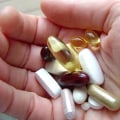But now, people are becoming interested in echinacea again because some antibiotics don't work as well as before against certain bacteria. Echinacea is widely used to fight infections, especially the common cold, flu, and other upper respiratory tract infections. Echinacea has long been used to combat colds and infections, and many experts recommend its use. It's one of the most popular supplements in the U.S.
UU. Echinacea use occurred mainly in the first trimester (54%); 8% used echinacea during the three quarters. Echinacea was promoted as an immunostimulator, especially for reducing the common cold; however, three of the four published studies concluded that taking echinacea to prevent a cold was not effective. The derivatives of caffeic acid found in echinacea are cyclic acid, echinacoside, 1,3-dicaffeylquinic acid and chlorogenic acid; caftaric acid with cyclic acid as the main phenolic compound of echinacea purpurea and echinacoside as the main phenolic compound of E.
Recently, well-controlled clinical trials have been conducted with standardized echinacea preparations and, more recently, mechanistic studies on biotechnology and the active components, many of them funded by the National Center for Complementary and Alternative Medicine from the National Institutes of Health (NIH) attests to a renewed effort to provide evidence that supports the beneficial effects and addresses the safety issues of echinacea products. A more comprehensive trial that also includes influenza virus and other respiratory viruses, including the use of a well-characterized bioactive echinacea extract, is needed to confirm the benefits of oral echinacea use.


